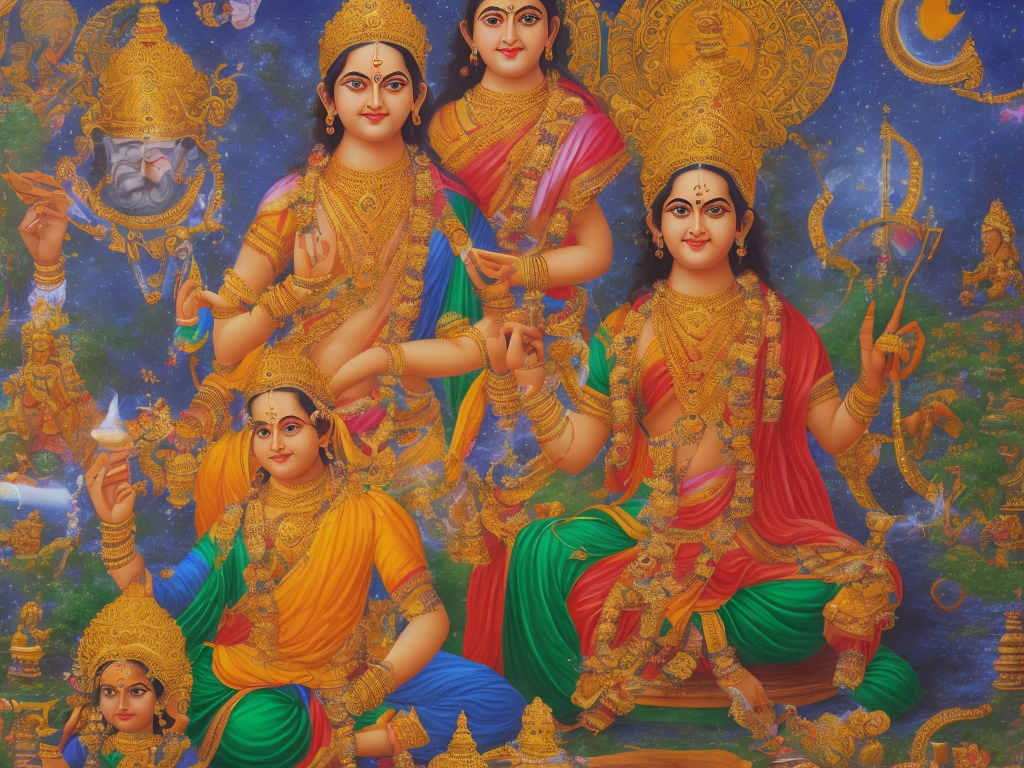
Jayanti and Janmotsav are two words that are commonly used around the world when referring to the celebrations that are held to commemorate the birth of great personalities. However, it is not uncommon for these two words to be used interchangeably, and as a result, most people assume that they mean the same thing. In reality, there are some important differences between the two, and understanding these differences can be helpful when distinguishing between the two. So, what is the difference between Jayanti and Janmotsav?
Jayanti
Jayanti is a Sanskrit word that translates to "victory" or "win." In the context of celebrations commemorating the birth of great personalities, Jayanti refers to the annual celebration of the birth anniversary of a person who has achieved great things in their lifetime.
Jayanti celebrations are usually held with great enthusiasm and involve various cultural and religious activities. These celebrations are often accompanied by a variety of performances including folk dances, classical music, and other cultural activities.
Jayanti celebrations are observed across India and are often associated with the birth anniversary of important figures in Indian religion, politics, and culture. They can also include the teachings of the person being celebrated, as well as their contributions to society.
Janmotsav
Janmotsav, on the other hand, is a Hindi word that translates to "birthday celebration." Janmotsav, as its name suggests, is the celebration of an individual's birth anniversary.
Janmotsav celebrations are held with great fanfare and often include feasting, music, dance, and other activities. These celebrations are usually organized by family members, friends, or social and religious organizations to commemorate the special occasion of a person's birth.
Janmotsav celebrations can be religious in nature, and in some cases, may involve temple rituals and prayers to honor the gods and goddesses associated with the person being celebrated. They can also be secular in nature and include activities like food festivals, parades, and cultural performances.
How are they different?
While Jayanti and Janmotsav share many similarities, there are some key differences between the two.
Jayanti is associated with the birth anniversary of famous personalities who have made significant contributions to society in areas such as politics, religion, or culture. On the other hand, Janmotsav is simply the celebration of a person's birth.
Another difference is in the reverence with which the two celebrations are held. Jayanti celebrations are generally more formal and have a more cultish flavor, with more emphasis on the teaching, philosophy, or life of the person being celebrated. In contrast, Janmotsav celebrations are often more light-hearted and festive, with the emphasis on enjoying the occasion and celebrating the joy of life.
The essence of Jayanti is more intellectual and philosophical, while the essence of Janmotsav is more human and emotional.
Finally, Jayanti celebrations are usually organized by social and religious organizations with specific objectives, whereas Janmotsav celebrations are organized more spontaneously by family members or friends.
Conclusion
In conclusion, Jayanti and Janmotsav are both important cultural celebrations observed in India to honor the birth of great personalities. Even though they share some similarities, they have some significant differences that are important to understand.
Jayanti is a more philosophical and intellectual celebration that recognizes the teachings, life, and achievements of significant figures in Indian culture, religion, and politics. Janmotsav celebrations, on the other hand, are more human and emotional and are simply about celebrating the joy of life and the birth of a loved one.
The two celebrations are important, and it is essential to understand their distinct characteristics to appreciate their significance fully.
 Self-Instruct
Self-Instruct